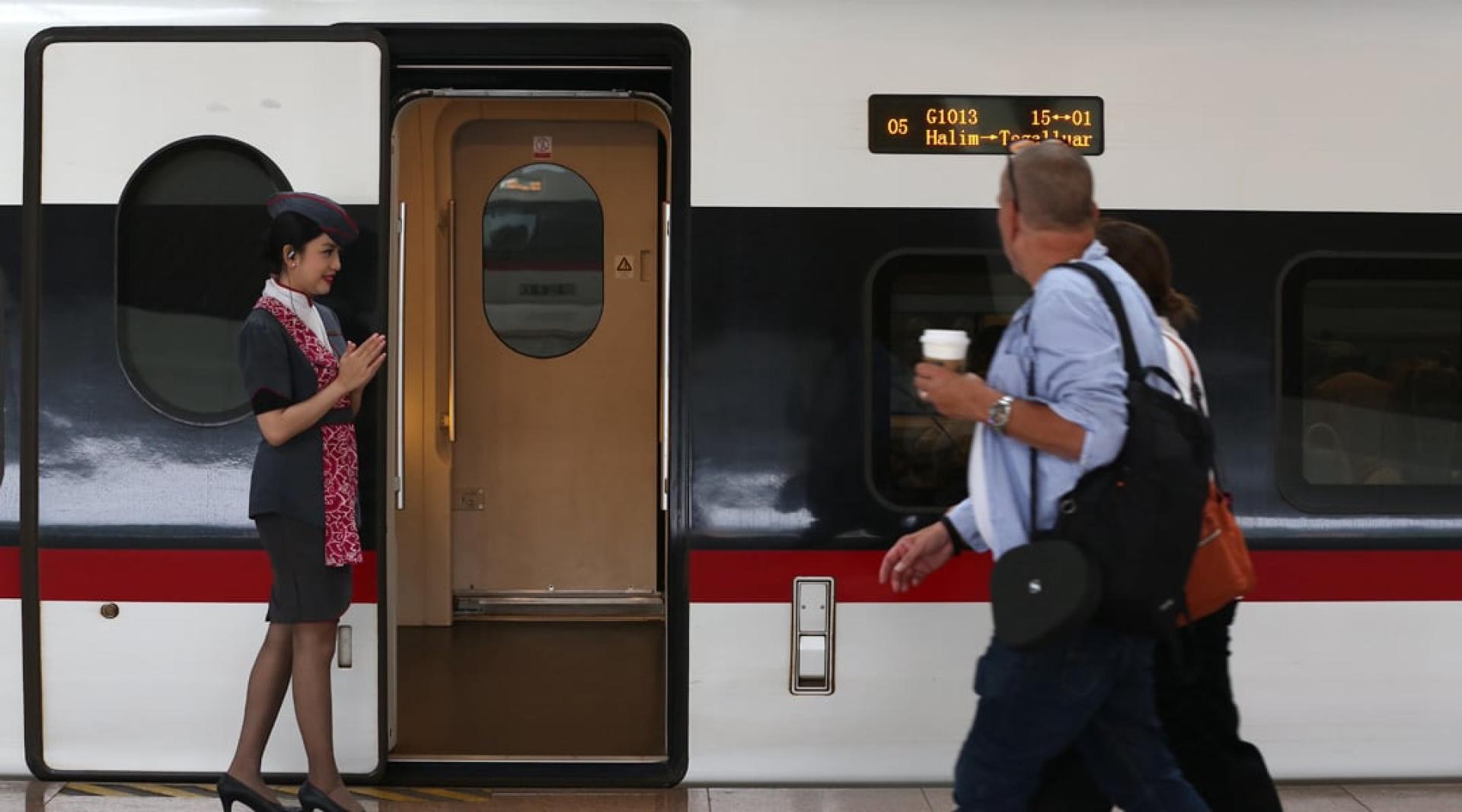Despite the Jakarta–Bandung high-speed railway in Indonesia, which introduced Chinese capital and technology, officially opening to traffic, it has continued to suffer massive losses and has been accused of facing operational difficulties. The Indonesian government is currently negotiating with China over its debt restructuring issues. Chinese Foreign Ministry spokesperson Guo Jiakun responded on the 20th that, aside from financial data, public benefit and overall returns should also be considered, and that China is willing to continue cooperating with Indonesia to ensure high-quality operations for the railway.
On the afternoon of the same day, the Chinese Foreign Ministry held its regular press conference. Answering questions from the media, Guo Jiakun said that the Jakarta–Bandung High-Speed Railway has now been officially operating for two years. Over the past two years, the railway “has maintained safe, smooth, and orderly operations,” transporting over 11.71 million passengers in total, with passenger flow continuing to grow steadily. “The economic and social benefits are being constantly realized, creating many local job opportunities and powerfully boosting economic development along the route. It has been widely recognized and welcomed by all sectors of Indonesian society.”
He stated that both the Chinese and Indonesian governments attach great importance to the development of this project, and that competent authorities and enterprises on both sides “have maintained close coordination, providing a solid guarantee for the safe and stable operation of the high-speed rail.”
The Jakarta–Bandung high-speed railway project, which cost 7.3 billion USD (about 30.8 billion MYR), connects Indonesia’s capital Jakarta with Bandung in West Java, reducing the journey that used to take over three hours to about 40 minutes. It began trial operations in September 2023 and officially opened in October of the same year.
However, Indonesian state-owned enterprises have also incurred heavy debts. In 2017, China provided a loan of 4.55 billion USD to the Indonesia-China High-Speed Railway Company, but the COVID-19 pandemic caused the project to overrun by another 1.2 billion USD, with China charging higher interest rates on the over-budget loans.
Due to construction costs and lower-than-expected actual passenger flow, PT Kereta Api Indonesia (KAI)—the main builder and operator of the Jakarta–Bandung High-Speed Railway—suffered a loss of 1.81 trillion Indonesian rupiah (about 457 million MYR) in the first half of the year because of its involvement in the project.
According to a report by the 'Indonesia Business Post' in August, KAI warned Indonesia’s parliament that if debt restructuring is not carried out soon, the project will become a “time bomb.”
